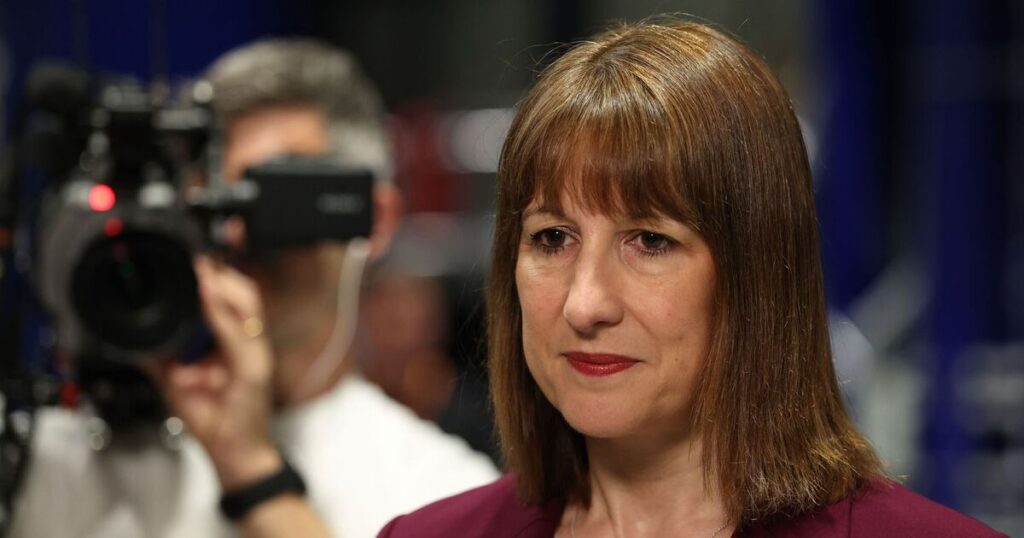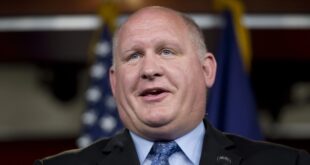
Fears are mounting that Rachel Reeves will be forced to announce tax hikes in the Autumn Budget after new figures revealed government borrowing hit a worse-than-expected £20.2 billion in April.
The data, released by the Office for National Statistics (ONS), has reignited concerns the Chancellor may have little choice but to squeeze households further to meet her fiscal rules.
Despite a bump in National Insurance receipts following increases announced in the Spring Budget, the government still borrowed £1 billion more than in April 2024 — a worrying signal as Rachel Reeves prepares her crucial departmental spending review on June 11.
Ruth Gregory, economist at Capital Economics, warned: “This raises the chances that if the chancellor wishes to stick to her fiscal rules, more tax hikes in the Autumn Budget will be required.”
The figures come as Prime Minister Sir Keir Starmer faces growing political pressure following a partial U-turn on winter fuel payments and amid expectations of further rises in defence spending — two factors that could blow a further hole in the already precarious public finances.
Fiscal black hole deepens
The borrowing overshoot, which confounded analysts’ predictions of a fall to £17.9 billion, has sparked fresh warnings that the UK could be heading for another round of painful revenue-raising measures.
In an internal memo seen ahead of the Spring Statement, Deputy Prime Minister Angela Rayner had already called on Reeves to opt for “further tax increases rather than cutting public spending”.
The latest figures appear to reinforce that argument, even as families and businesses grapple with high living costs.
Matt Swannell, Chief Economic Advisor to the EY ITEM Club, pointed to underlying weaknesses, saying: “Given April’s small year-on-year fall, achieving the OBR’s full-year forecast of a deficit of £36.1bn looks to be a very tall order.
“Higher gilt yields and market expectations for Bank Rate will push up debt servicing costs,” he added. “These factors are likely to more than eliminate the slim headroom against the fiscal rules.”
Market fears and tax rise expectations
Warnings from markets and business leaders have been particularly stark. Gabriel McKeown of The Sad Rabbit Newsletter said: “These elevated borrowing levels underscore the government’s struggle to balance spending with income amidst rising costs and economic uncertainties… stabilising public finances is vital for reigniting rapidly depleting confidence.”
Others were more scathing. Sam Alsop-Hall of Clive Henry Group, told Newspage: “£20 billion borrowed in a single month … This isn’t economic stewardship, it’s economic sleepwalking.”
David Belle, founder of Fink Money, went further, saying: “We are in a crisis situation… the solution Labour will pull out for this is higher taxes, rather than doing anything growth positive.”
With public sector debt now equivalent to 95.8% of GDP and the cost of servicing it climbing, pressure is mounting on Reeves to deliver a credible plan — not only to the public, but also to jittery markets.
Tax rises ahead?
While ministers have publicly denied planning tax increases, industry experts and commentators believe they are now all but inevitable.
Speaking after the figures were released, Darren Jones, Chief Secretary to the Treasury, said: “After years of economic instability crippling the public purse, we have taken the decisions to stabilise our public finances, which has helped deliver four interest rate cuts since August, cutting the cost of borrowing for businesses and working people.”
 Latest Breaking News Online News Portal
Latest Breaking News Online News Portal






